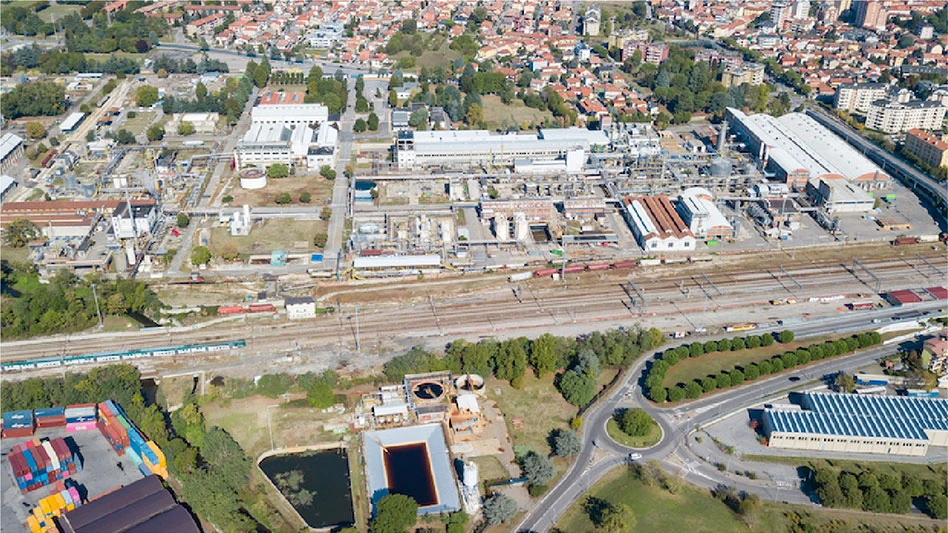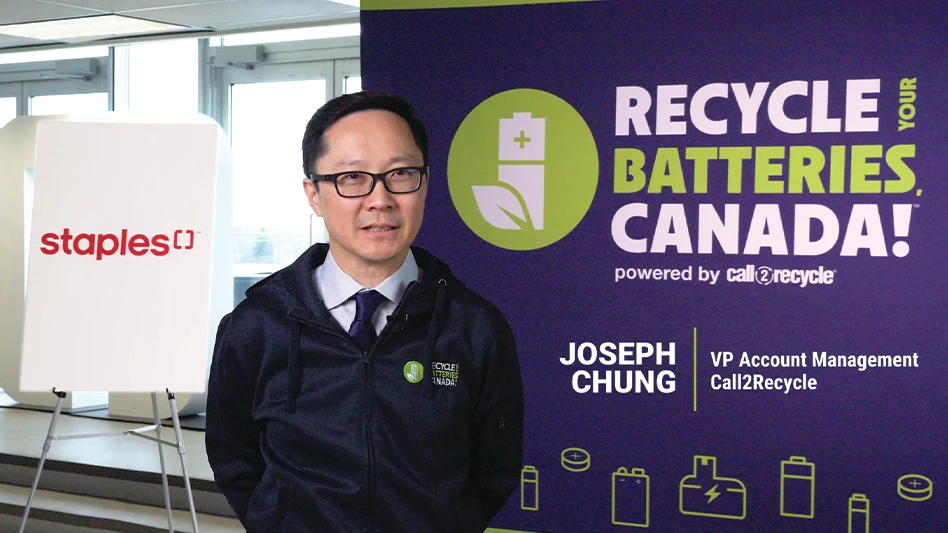
Photo courtesy of Trinseo
Trinseo, headquartered in Wayne, Pennsylvania, has inaugurated its Rho, Italy-based demonstration plant that depolymerizes polymethyl methacrylate (PMMA). The company, a specialty material solutions provider, says the plant is scheduled to be commissioned in the first quarter of 2024.
PMMA is known for its versatility in various applications, according to the company, and will be transformed through the advanced recycling and purification process employed at the plant, enabling it to return to the plastics value chain to support the goal of circularity. The depolymerization operation is designed to enable the recycling of end-of-life PMMA and other difficult-to-recycle structures, Trinseo says. The monomers the plant generates will be used to produce acrylic resins, sheets and compounds.
The company says depolymerization is a chemical recycling technology that complements traditional mechanical recycling processes.
“Innovation in recycling technologies is imperative to effectively recycle various types of materials. This new facility is yet another major achievement towards a scalable system, with the goal of making PMMA a truly circular material of high quality,” Trinseo Chief Sustainability Officer Francesca Reverberi says. “When combined with our own in-house sourcing and treatment of collected materials through our Heathland recycling operation, our PMMA depolymerization plant will offer a high-performance solution for a world increasingly looking for new ways to address sustainability in the plastics supply chain.”
Trinseo says its depolymerization facility is being developed around a continuous recovery model to produce high-quality recycled PMMA that matches its virgin counterpart’s quality. Using this advanced recycling technology can help deliver sustainability benefits to consumers, manufacturers and industries for products that range from car lamps to signage.
Material produced using the depolymerization process will be integrated into Trinseo's “R-Life” portfolio, which is designed around a commitment to sustainability and includes mechanically and chemically recycled PMMA grades. These products find applications across mobility, construction and consumer goods, aligning with the growing demand for products that are developed with sustainability in mind, the company says.
Latest from Recycling Today
- GreenMantra names new CEO
- Agilyx says Styrenyx technology reduces carbon footprint in styrene production
- SABIC’s Trucircle PE used for greenhouse roofing
- Hydro to add wire rod casthouse in Norway
- Hindalco to invest in copper, aluminum business in India
- Recycled steel price crosses $500 per ton threshold
- Smithers report looks at PCR plastic’s near-term prospects
- Plastics association quantifies US-EU trade dispute impacts







